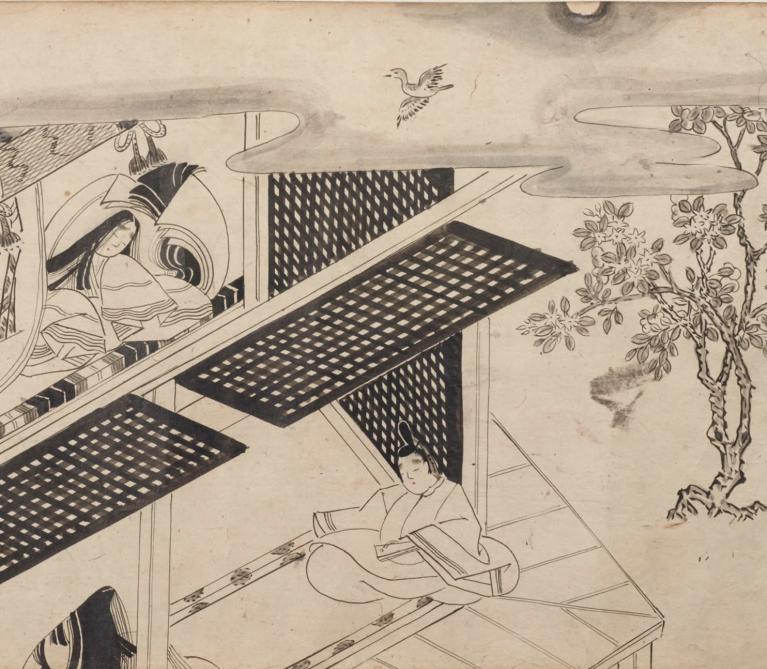Colloquia
The Problem of Reading Art
2015–2016 Graduate Student Symposium in East Asian Art
Both text and image can be seen; the process of interpreting what is seen is often described as “reading.” Written language is a learned code, and thus it requires the knowledge of a specific set of grammar, syntax, and vocabulary. In the field of art history, the method of “reading art” emerged out of the study of semiotics during the late eighties and continues to the present. By blurring the boundaries between text and image, “reading art” assumes that art objects, like texts, can be decoded and thus read. Moreover, “reading” presupposes that there are those who can read, those who cannot read, and those who determine how to read. Do images, however, require their own code of grammar, syntax, and vocabulary? This symposium aims to explore the intersections between reading and seeing, images and codes in East Asian art history.
Contact
Contact Skyler Negrete and Mai Yamaguchi (Tangctr@princeton.edu) with questions and concerns.
Symposium Program
Saturday, 27 February 2016
McCormick Hall
Princeton University
Registration and Coffee
8:30–9:30 am
Morning Session
9:30 am–1:00 pm
Welcome and Introduction
Mai Yamaguchi
Princeton University
Keynote Lecture
Reading Bijinga: Pictures of Beauties in Context
Julie Nelson Davis
Associate Professor of History of Art, University of Pennsylvania
Panel 1: Authorship
The Power of Ambiguity: Bada Shanren’s Personal Marks
Leqi Yu
Department of East Asian Languages and Civilizations, University of Pennsylvania
The Limits of “Reading Art”: Methodology and Ideology in the Study of Fu Baoshi’s Landscape Painting of the 1960s
Kathy Yim-king Mak
Department of Art History, University of California, Los Angeles
Panel 2: Landscape and Architecture
Landscaping My Mind: New Perceptions on Representing the Idea of “You” in Early-Seventeenth-Century Garden Paintings
Jiaying Gu
Department of Art and Art History, University of California, Davis
The Architectonic Reading of Spatial Representation in “Three Paintings” by Chen Chi-Kwan
Zhenru Zhou
School of Architecture, Princeton University
Discussion
Discussant: Professor Julie Nelson Davis
Moderator: Mai Yamaguchi
Afternoon Session
2:30–5:30 pm
Panel 3: Objects and Pictorial Representation
Pursuing Antiquity: Chinese Objects in Nineteenth–Century Korean Paintings
Ja Won Lee
Department of Art History, University of California, Los Angeles
Reading Text, Reading Tea
Skyler Negrete
Department of Art and Archaeology, Princeton University
From Kinnara to Kalavinka: On the Autonomy of Image in Buddhist Transmission from India to China
Guoying S. Zhang
The Robert H.N. Ho Family Foundation Centre for Buddhist Art and Conservation, The Courtauld Institute of Art
Discussion
Discussant: Professor Julie Nelson Davis
Moderator: Mai Yamaguchi, Princeton University
Concluding Remarks
Skyler Negrete, Princeton University
